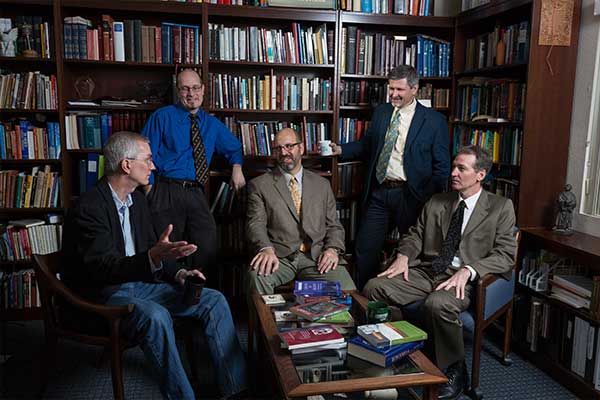Mark Brighton, professor of biblical languages and theology, first engaged the book of Revelation in a serious way as an undergraduate at Concordia University Irvine (then Christ College Irvine) in 1979.
“I began to read commentaries on it and was very taken with it,” he says. “It’s such a pastoral book. It’s often taken as secret decoder ring of future decades, and that’s unfortunate.”
Brighton graduated from CCI in 1981 and returned as an adjunct faculty in 1982.
“I have a unique opportunity here,” he says. “I don’t think there’s anywhere else where I could come into contact with a hundred and fifty undergraduates and we get to read Scripture together. This is why I love my job so much.”

Brighton often starts his day with five- mile runs and prayer. He wrote the initial manuscript for the RHBC series’ Revelation commentary in three months, on a tiny laptop at his dining room table.
“It’s a daunting task to organize thoughts and get them on paper, but it was fun to live in the book of Revelation very intensely for a few months,” he says.
He relied on scholarship by his father, Louis Brighton, who wrote the CCS book on Revelation, published in 1999.
“For him it was always about the love of Jesus,” Mark says. “Finally that’s what I see in the book of Revelation. It’s about [God’s] grace and his power to save. For my father it was both academic and highly personal... When I’m with my students I’m much more interested in having them engage Jesus in his grace and power to save."
"I would like for them to love Jesus. Love of theology and confessions is good, but it can’t stop there."
Finally your love for theology has to point you to your first love which is Christ.”
President Krueger says that motivation is what makes Christ College special.
“Not only are the faculty scholars but excellent teachers,” Krueger says. “That’s rare to find. We have been really blessed with faculty who can do both. They relate well to students, and they can do the heavy lifting of biblical exegesis and confes- sional scholarship.”